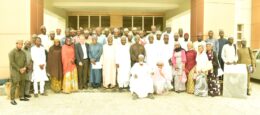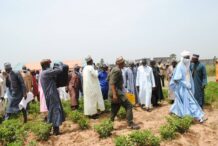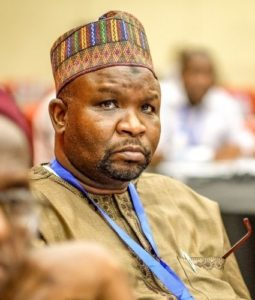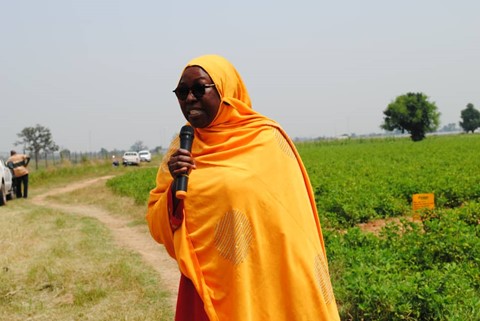CDA Collaborates with Partners to Address Food Insecurity
CDA Collaborates with Partners to Address Food Insecurity
The Centre for Dryland Agriculture (CDA) has collaborated with its partners to address the challenges of food insecurity affecting Nigeria and other African countries. UK based LINKS Program and Silvex International have expressed their unwavering commitment to strengthening their partnership with the CDA by coming up with workable strategies to address the food shortages, which have been exacerbated by climate change.
Commemoration of World Food Day by CDA: The Centre commemorated the 2021 World Food Day with a Symposium titled: Food Security in the Face of a Changing Climate: Northern Nigeria in Perspective. World Food Day is celebrated every year on October 16 to commemorate the date of the founding of the United Nations Food and Agriculture Organization in 1945. The day is also observed by organizations like World Food Programme and International Fund for Agricultural Development. Since 1981, World Food Day has been celebrated under various themes to highlight the importance of food security, with most of them revolving around agriculture.
The Director of CDA, Professor Jibrin Mohammed Jibrin, in his remarks, said the centre joined the rest of the world to commemorate the day by organizing a symposium to discuss topical issues related to food security in Nigeria. He said the symposium would create awareness of the challenges being faced especially on food security and climate change. CDA invited key stakeholders to brainstorm and come up with solutions that would be beneficial to policymakers and private sector actors to address these challenges.
In his presentation titled: 2021 Growing Season: Forecast, Reality and the Role of NIMET, the Director General of Nigeria Meteorological Agency (NIMET), Professor Mansur Bako, said the seasonal climate prediction being produced by NIMET is in fulfillment of one of its core mandates. He stated that NIMET monitors weather and climate in Nigeria and provides authoritative meteorological information for sustainable development and safety of life and property.
Professor. Bako, who spoke virtually stated that the wide range of applications of NIMET’s products and services made weather and climate information a relevant input in agriculture and almost all the sustainable development goals, including education.
He said that most states in Nigeria experienced below normal rainfall this year, as had already been predicted by NIMET and communicated to the farmers for them to take appropriate measures.
Presenting an Overview of LINKS/FCDO Climate Smart Agriculture Projects, the Team Lead of the Links Project, Andrew Thorburn said the project aims to transform strategic value chains to improve resilience and reduce climate impact through systems of rice intensification, regenerative agriculture platforms, and sustainable fibre alternatives for cotton.
Speaking on behalf of Silvex International, the Managing Director, Abubakar Usman Adam, mentioned that the company is investing in farm estates for a newly launched program in Jigawa and Nasarawa states which is aimed at bridging the gap in food production efficiency amidst climate change challenges.



